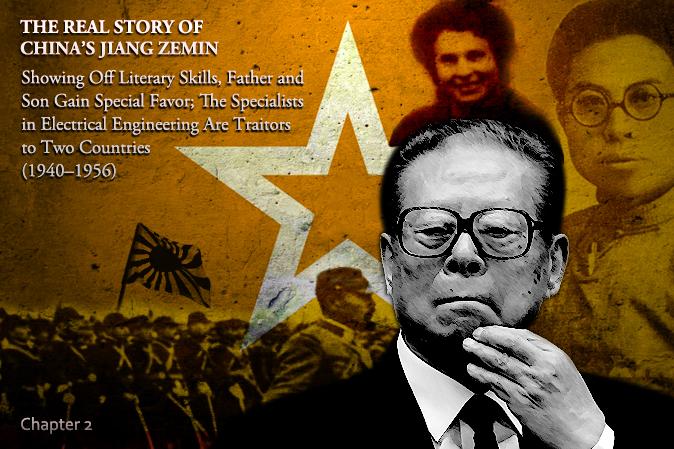Jiang Zemin’s days are numbered. It is only a question of when, not if, the former head of the Chinese Communist Party will be arrested. Jiang officially ran the Chinese regime for more than a decade, and for another decade he was the puppet master behind the scenes who often controlled events. During those decades Jiang did incalculable damage to China. At this moment when Jiang’s era is about to end, Epoch Times here republishes in serial form “Anything for Power: The Real Story of Jiang Zemin,” first published in English in 2011. The reader can come to understand better the career of this pivotal figure in today’s China.
Chapter 2: Showing Off Literary Skills, Father and Son Gain Special Favor; The Specialists in Electrical Engineering Are Traitors to Two Countries (1940–1956)
Jiang Zemin likes to give people the impression he is skilled at song and dance. He can play several musical instruments, among which are the piano, the erhu, and the guitar. Such is Jiang’s drive to show off musical ability that he often loses sight of propriety. One such occasion was March 30, 1999, the date on which Jiang visited Mozart’s hometown of Salzburg accompanied by the President of Austria, Thomas Klestil. The most valuable item in Mozart’s former residence was a Vienna piano that was purchased by the maestro himself in 1785. After the president introduced the 200-year-old antique, Jiang dashed to the piano, plopped down on its stool, and opened the piano, eager to play. Now, had he played some of Mozart’s representative works, such as Don Giovanni or Marriage of Figaro, the scene could have been read as one of fond reminiscence or even tribute. But Jiang, much to everyone’s surprise, started to play, rather inappropriately, a Chinese song—“Wave Upon Wave in the Honghu Lake.” [1] President Klestil, visibly uncomfortable, clearly wished not to let Jiang touch the maestro’s precious antique but was bound by diplomatic etiquette to stand aside. Jiang obliviously played on, casting all the while furtive glances at the several Chinese dames then present, hoping to win their admiration.Intoxicated by his own show of musical prowess—a spell that drove him even to play Mozart’s grand piano—Jiang hardly seemed to realize that in his antics was suggested the true history he shared with his father: two generations of treachery.





